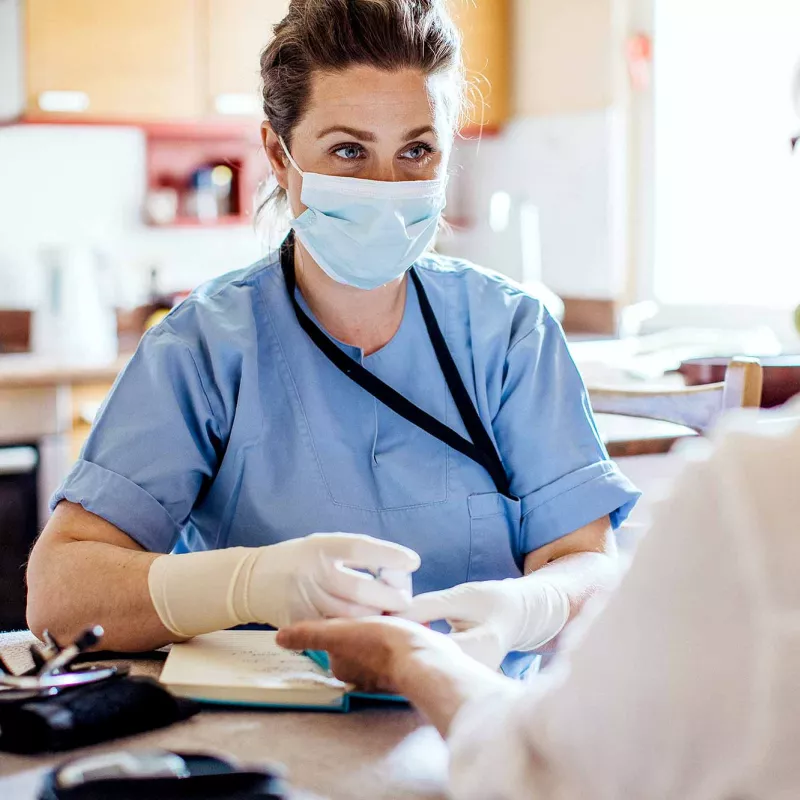We Can Help You Face AFib With Confidence
According to the American Heart Association, AFib is the single most common abnormal heart rhythm in the United States, affecting an estimated 2.7 million Americans — and it’s the underlying cause in about 15% of all strokes. But this serious condition is treatable, especially when diagnosed early.
-

What Is Atrial Fibrillation?
AFib usually affects people between the ages of 30 and 60 and happens when the heart’s upper chambers receive abnormal electrical signals. The heart’s entire rhythm suffers, beating too fast and irregularly.
For adults, a normal resting heart rate ranges from 60 to 100 beats per minute, but during AFib, it could be up to 175 beats per minute.
And because blood is not being carried through the heart valves correctly, it can collect and form clots in the heart which could travel to the brain, blocking blood flow and causing a stroke.
-

What Causes Atrial Fibrillation?
For most people, AFib is tied to heart disease or a heart abnormality. But when there’s no underlying heart disease, the root cause can sometimes be unknown.
-

The Three Types of Atrial Fibrillation
Occasional AFib: Begins suddenly and stops on its own, usually in less than 24 hours, or no more than a week.
Persistent AFib: Continues for more than a week. It may stop on its own, or it may need treatment.
Permanent AFib: Normal heart rhythm can’t be restored with treatment.
-

Symptoms of Atrial Fibrillation
Symptoms of AFib can be different for everyone. Some people have no symptoms and their AFib is only discovered during a routine exam. Others may feel some of the following symptoms:
- A skipped or racing heartbeat
- Chest pain
- Dizziness
- Fatigue or weakness
- Shortness of breath



